The best way to capture UTM Parameters in OnceHub
Learn the best way to capture UTM parameters with each new OnceHub booking, and then send them to your CRM and other tools.
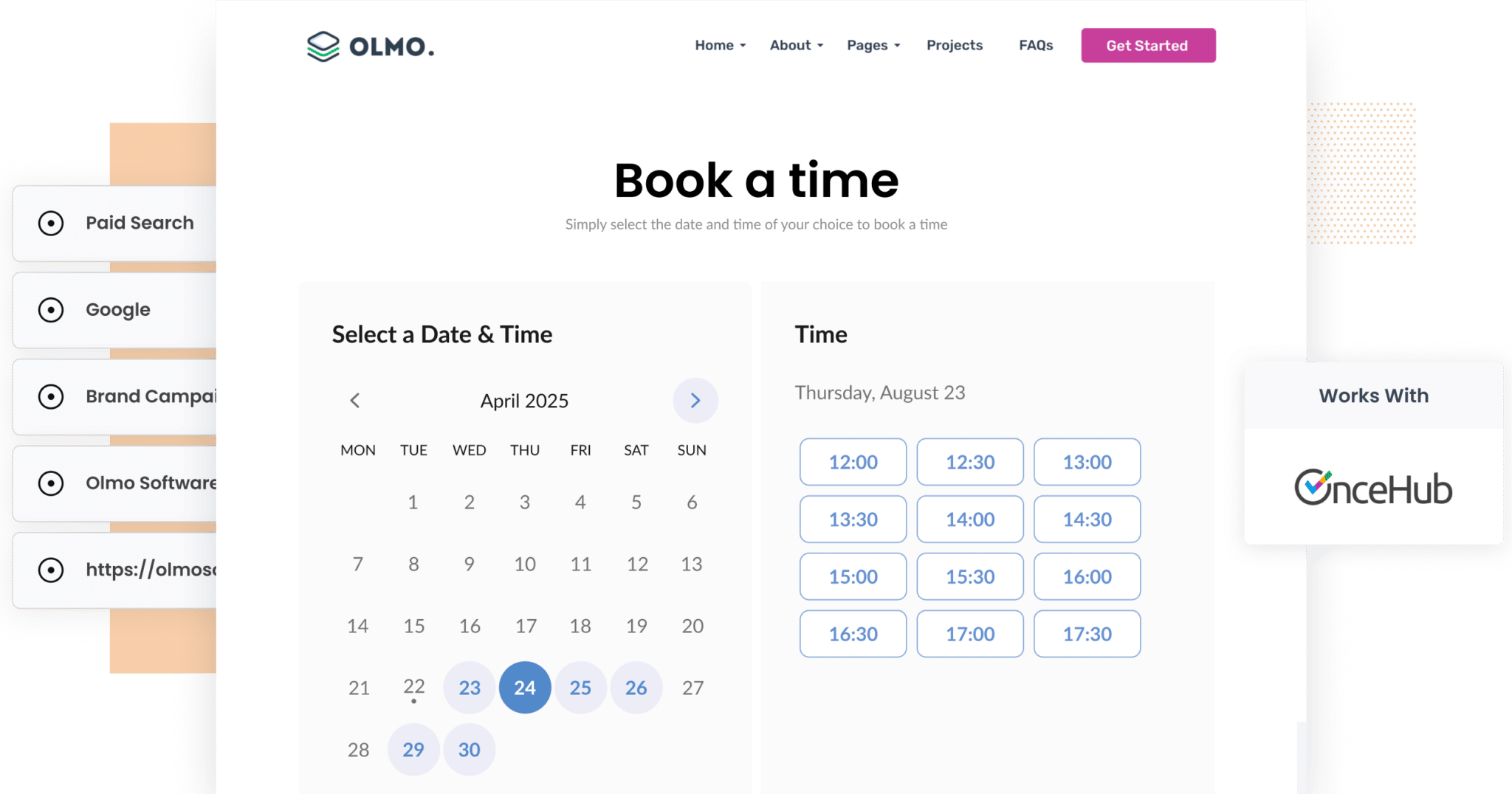
You’re running Google or Facebook ads. Traffic is flowing. But how many meetings are your ads actually generating?
That’s the question many marketers are asking, and unfortunately, it's not always easy to get the answer.
While OnceHub does offer basic support for capturing UTM parameters, it only works under very specific conditions: the lead must book a call on the same page they landed on from your ad. But what happens when they click your ad, land on your homepage, then navigate to your "Contact Us" page? The UTM data is lost, and so is your visibility into which campaign drove the lead.
But there’s a better way.
In this article, we’ll show you how to use a tool called Attributer to properly capture UTM parameters in OnceHub and send that data straight to your CRM and other tools.
3 steps for capturing UTM parameters in OnceHub
Using Attributer to capture UTM parameters in OnceHub is easy. Here's how to do it in 4 easy steps:
1. Install Attributer on your website
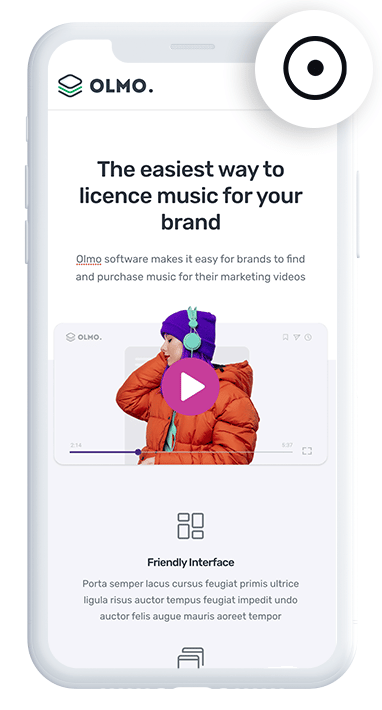
When you start your 14-day free trial of Attributer, you’ll receive a small snippet of code to install on your website.
Most website builders let you add it via their Settings area, or you can use a tool like Google Tag Manager.
If you need help, step-by-step setup guides for all major platforms are available here.
2. Attributer captures and passes through the UTM parameters
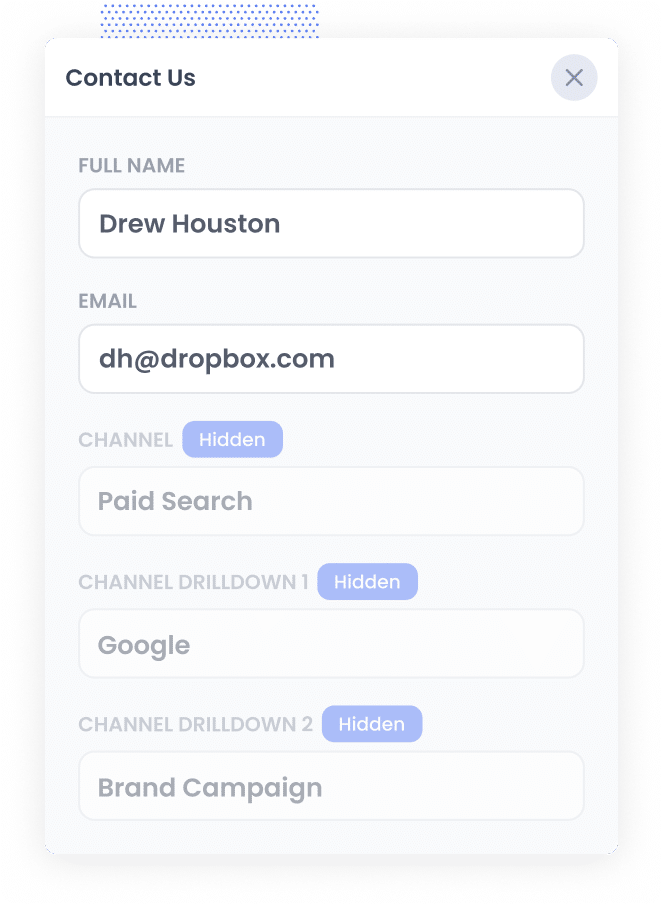
When a person visits your website, Attributer will read the UTM parameters and use them to determine where the visitor came from (Paid Search, Paid Social, Display, etc). It will then store the data in the visitor's browser, and when they eventually book a meeting, pass it through to OnceHub with the booking.
To see how this works in practice, let’s say you’re a marketer at a company called Olmo Software.
A potential customer clicks on one of your Google Ads, lands on your homepage, clicks the "Request a Demo" button, and books a time through the OnceHub widget embedded on your Book a Demo page.
Based on the UTM parameters attached to the ad, Attributer would capture and pass the following data into OnceHub:
- UTM_Medium = Paid Search
- UTM_Source = Google
- UTM_Campaign = Brand Campaign
- UTM_Term = Olmo Software
This would give you a detailed understanding of which campaign, ad, keyword, etc. is responsible for generating the lead.
3. Send the data to your CRM and other tools
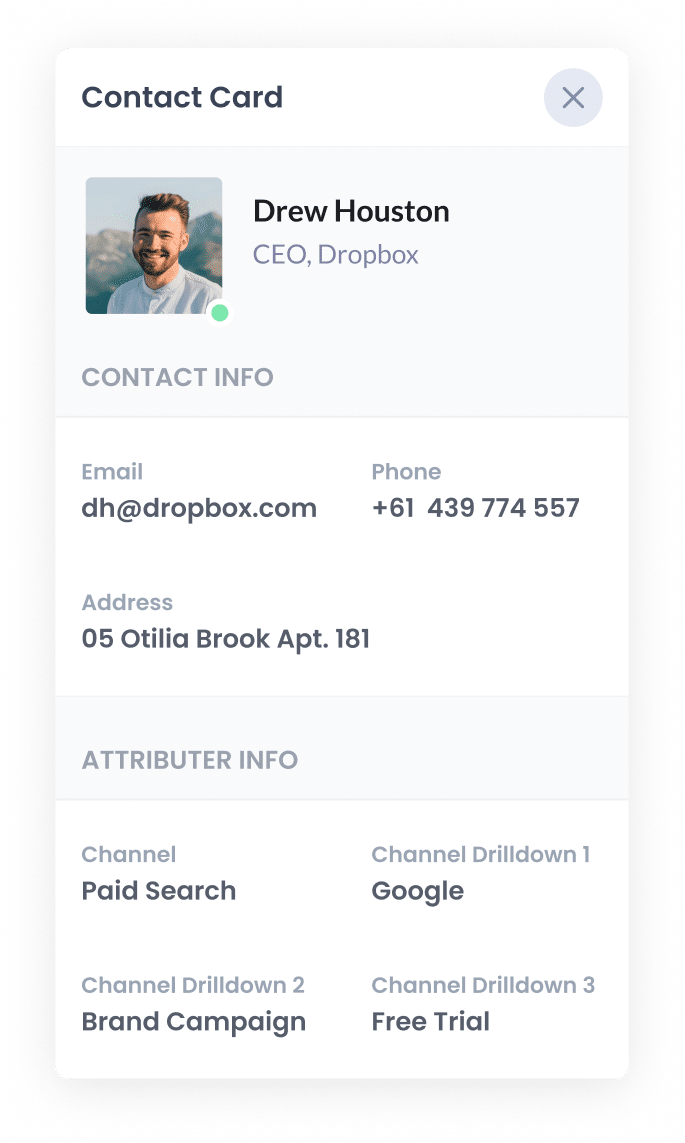
Once the data is successfully captured in OnceHub, you can use it in a variety of ways:
- View it in OnceHub: See the UTM data directly in the ‘Activity Stream’ section to understand where each booking came from.
- Send it to your CRM: Automatically push the data into tools like Salesforce, Hubspot, Pipedrive, Zoho CRM, and others, so you can run reports that show how many leads and customers you've generated from each campaign you're running.
- Sync it to spreadsheets: Export the data to Google Sheets or Microsoft Excel for custom analysis and reporting.
What is Attributer?
Attributer is a snippet of code you add to your website.
When a visitor arrives, Attributer analyses key technical data to determine how they got to your site. It then categorises them into channels like Paid Search, Organic Search, Paid Social, and more, and stores this information in the visitor’s browser.
Later, if that same visitor books a meeting through your OnceHub widget, Attributer automatically passes their attribution data through, so alongside their name, email and phone number, you’ll also see exactly where they came from.
Attributer was originally developed by a marketing consultant who needed a better way to track which campaigns were driving meetings and leads for his clients.
Today, Attributer powers attribution on thousands of websites and captures UTM parameters and other lead source data from over 8 million visitors each month.
Why using Attributer is better than capturing raw UTM parameters
We know that OnceHub has an out-of-the-box way to capture UTM parameters with each booking, so why use Attributer?
Here's how it's better:
1. Captures all traffic
OnceHub’s default UTM tracking can help you capture information on leads that come from your paid ads, but it stops short when it comes to organic sources. It can’t track leads that arrive through Organic Search, Organic Social, Referral, or even Direct Traffic.
And for most businesses, that’s a problem, because the majority of leads typically come from these non-paid channels. Without full attribution, you won't know where the majority of your leads come from.
That’s where Attributer comes in.
Unlike OnceHub's standard UTM tracking, Attributer passes through information on all your leads, including those from organic channels like Organic Search, Organic Social, Referral, Direct Traffic, and more.
The result? A complete picture of where ALL your leads are coming from, allowing you to make smarter decisions on how to grow your business.
2. Remembers the data as visitors browse your site
As previously mentioned, OnceHub’s built-in UTM tracking only works if the user books a meeting on the exact same page they landed on.
Here’s why that’s an issue: imagine someone clicks on one of your Google Ads and lands on your homepage. From there, they click a “Talk to Us” button and are taken to a separate page where your OnceHub widget is embedded. Because the booking happens on a different page from the original landing page, the UTM parameters are lost and you'll have no idea where the lead came from.
Attributer solves this problem.
It stores the UTM parameters in the user’s browser, so regardless of where they eventually book the meeting, the original UTM parameters are captured and passed through.
3. Provides cleaner data
OnceHub's default UTM tracking captures parameters exactly as they appear in the URL. This means that any inconsistencies in how UTM parameters are applied, such as differences in capitalisation or naming conventions, can lead to fragmented data.
For example, if some of your Google Ads campaigns use utm_source=adwords, others use utm_source=google, and still others use utm_source=google.com, these would look like 3 different sources when you tried to run a report, making it difficult to see how many booking syou actually got from your Paid Search ads.
Attributer addresses this issue by normalising UTM parameters. It accounts for variations in capitalisation and naming, categorising all these entries under a consistent channel like "Paid Search". This ensures cleaner, more reliable data, making it much easier to run reports that show how many leads and customers you're getting from your various campaigns.
4 example reports you can run when you capture UTM parameters in OnceHub
Before founding Attributer, I spent over 15 years in marketing and analytics, running countless reports to determine which campaigns were delivering results.
In this time, I found there were a small handful of reports that I kept turning to time and time again.
I've shared some of those reports below:
1. Leads by Channel
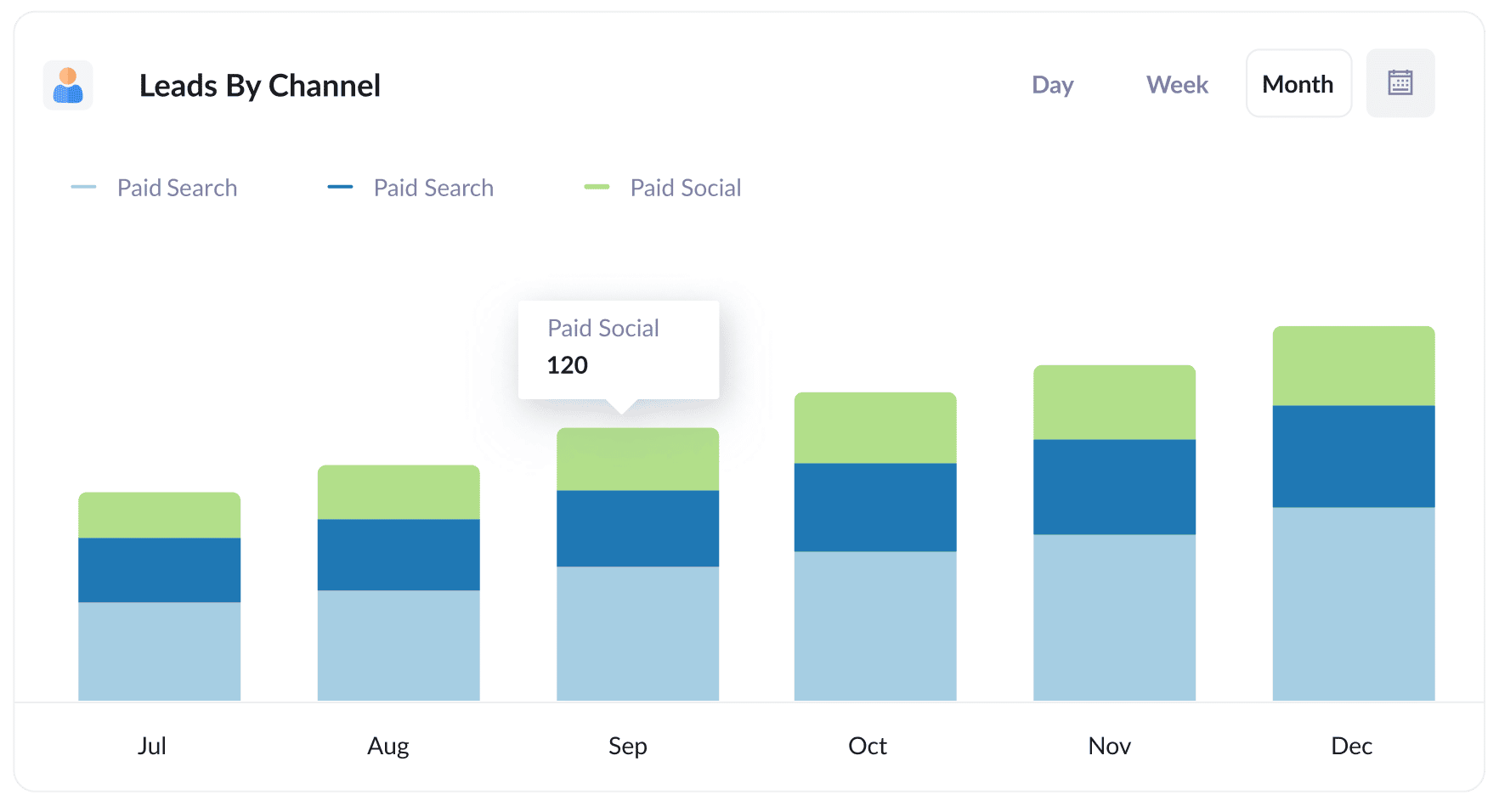
Since Attributer captures the source of all your leads, not just those from paid ad campaigns, it's easy to create reports like the one above that show how many leads you're acquiring each month, segmented by the channel they've come from.
This allows you to see which channels are performing best and where to allocate your resources more effectively.
For instance, if you discover that a significant portion of your leads comes from Organic Search, but the majority of your budget is allocated to paid advertising, it may be a good idea to reallocate some of your budget towards SEO efforts.
2. Leads by Meta Ads Network
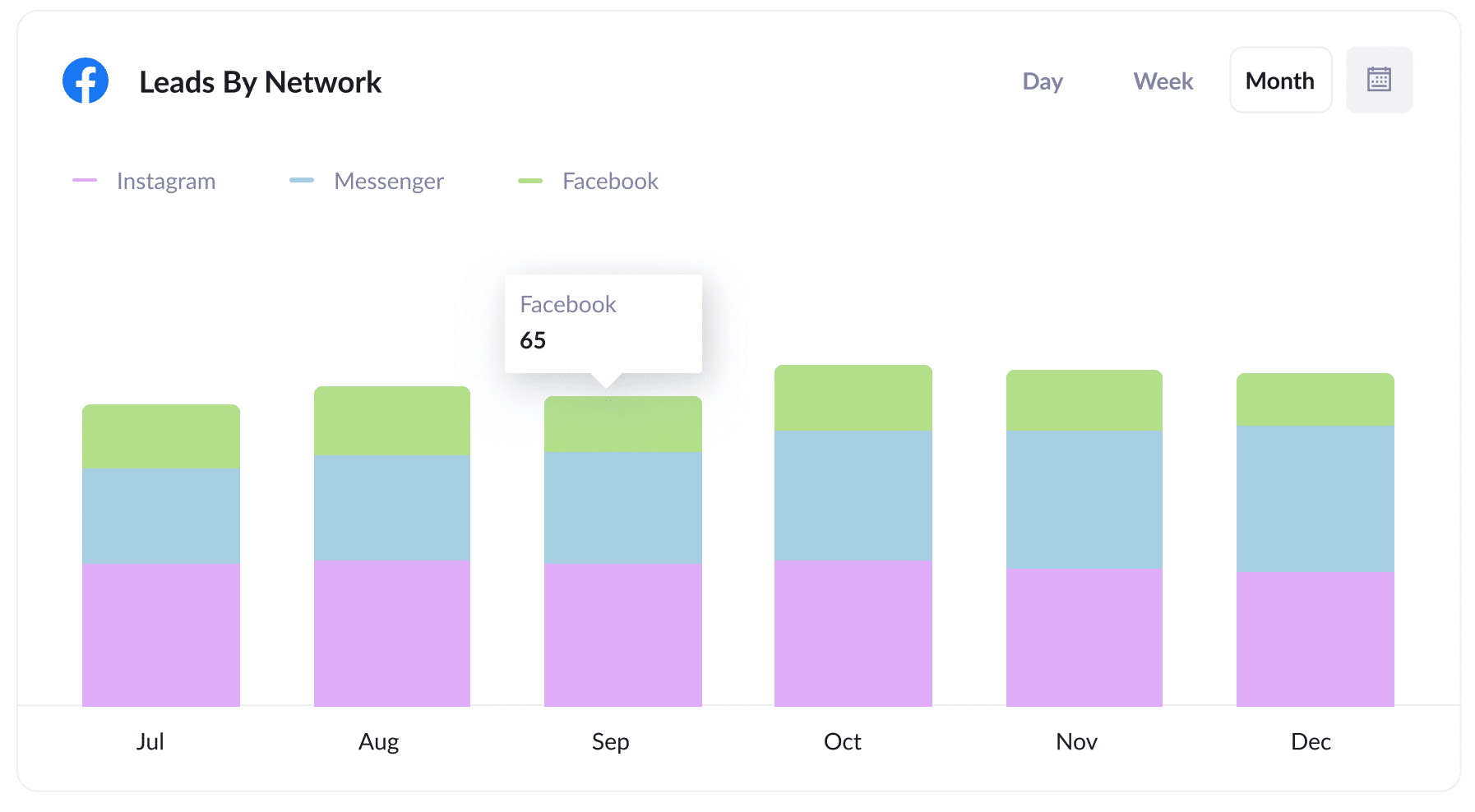
If you're running ads across Meta's platforms, such as Facebook, Instagram and Messenger, it's important to understand which networks are delivering the most value.
For instance, if you discover that Instagram is resulting in a higher number of quality leads compared to Facebook or Messenger, it may be beneficial to allocate more of your advertising budget to Instagram.
And that's where this report comes in. It shows you how many leads you generated from your Paid Social ads, broken down by the network they came from.
3. Customers by Google Ads campaign
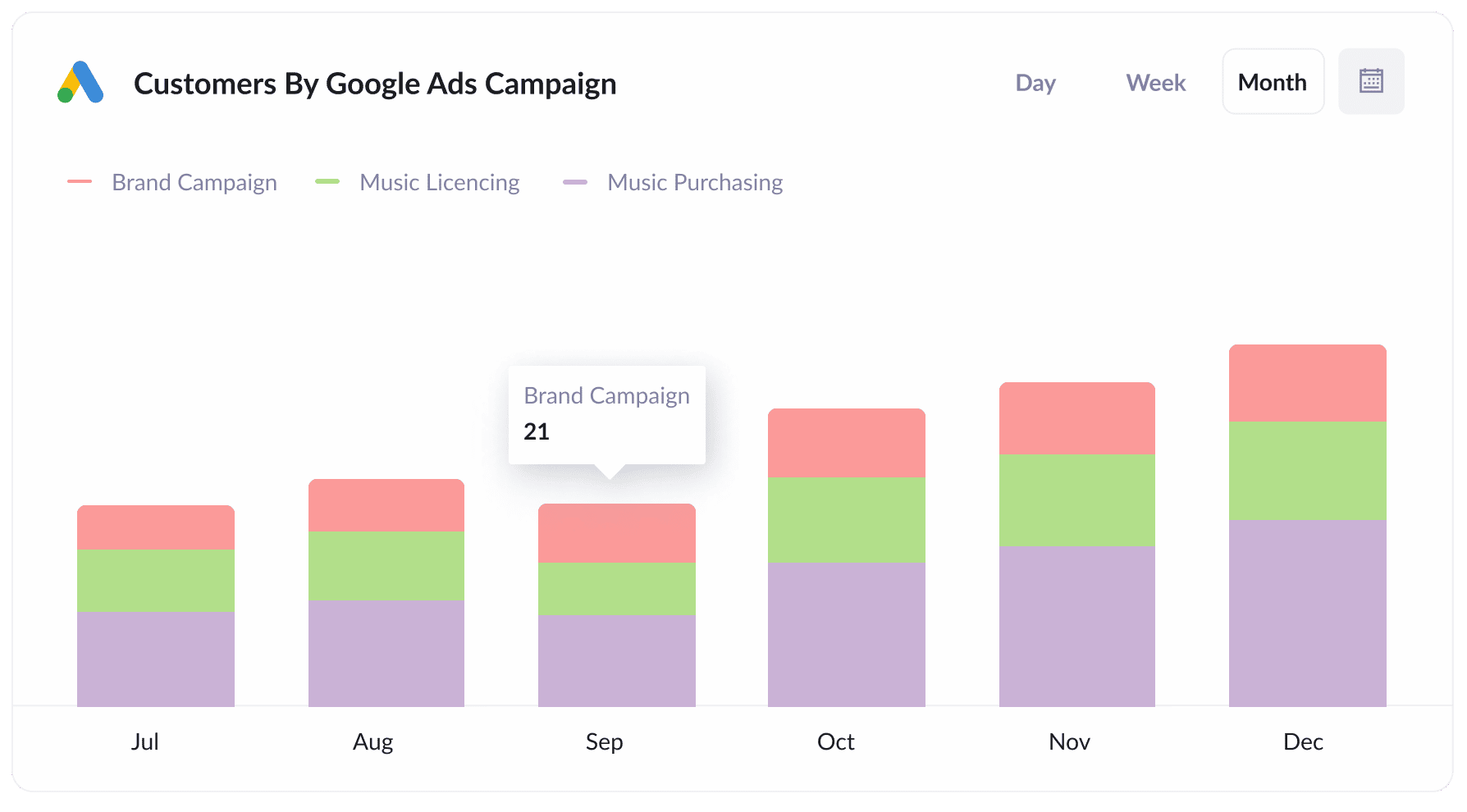
This report displays the number of customers acquired each month from your various Google Ads campaigns.
By analysing this data within your CRM or analytics tools, you can identify which campaigns are most effective, allowing you to allocate your budget and optimisation efforts more strategically.
4. Revenue by Keyword
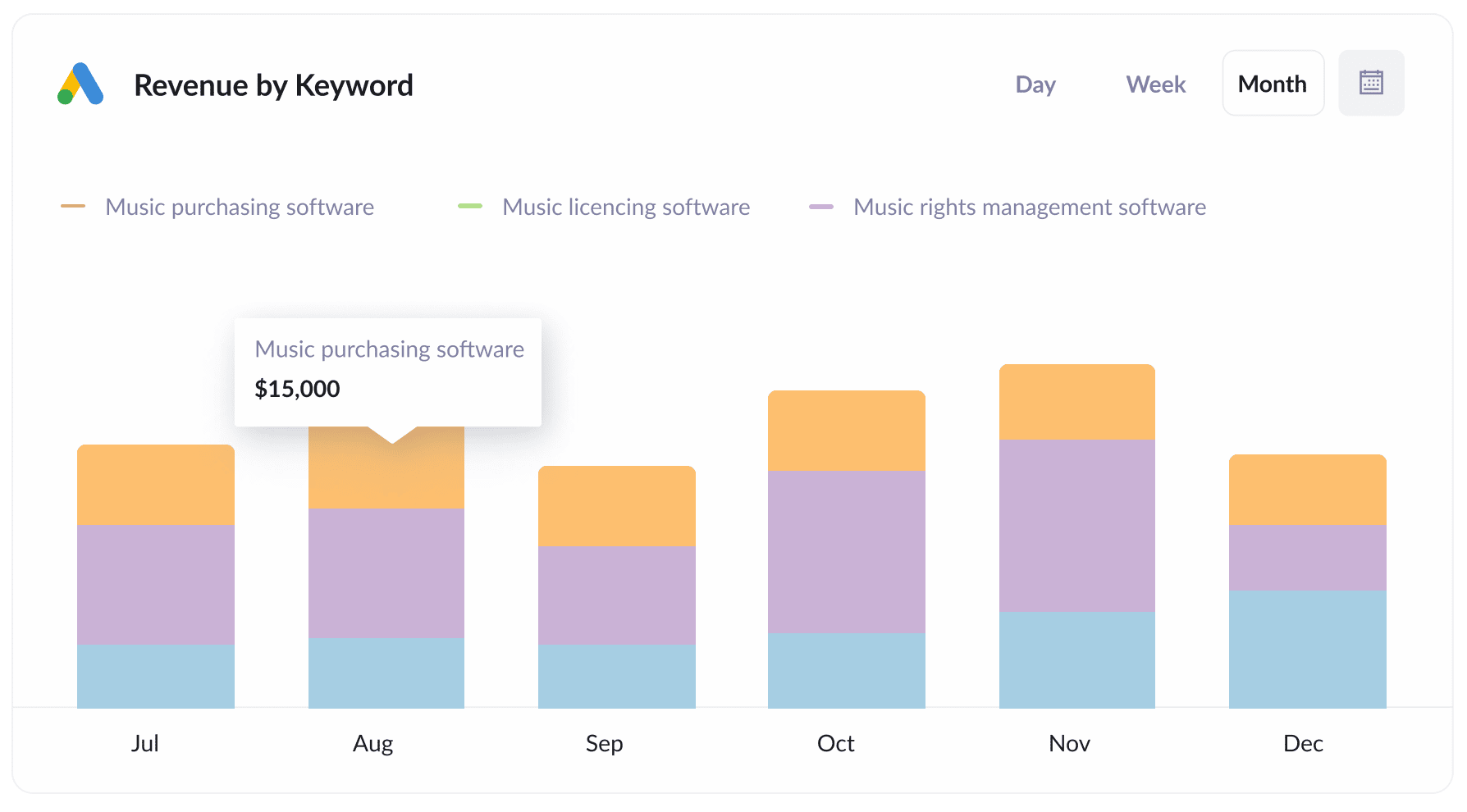
By incorporating the keyword into your Google Ads UTM parameters, which you can do by using tracking templates, you can capture the exact search terms your leads used to find your business.
These insights help you identify which keywords are most effective, allowing you to adjust your bids accordingly in Google Ads and ultimately drive increased revenue.
Wrap up
OnceHub is a powerful tool that enables potential customers to schedule meetings with you effortlessly.
However, its default UTM capturing feature has limitations. It only records UTM parameters if the booking occurs on the same page the visitor initially lands on. This means that if a user clicks on your ad and browses around your site before booking a meeting, the original UTM data may be lost. and you'll have no idea where the lead came from.
On top of that, OnceHub's native tracking doesn't capture information on leads from organic sources like Organic Search, Organic Social, Referral, or Direct Traffic. As a result, you might be missing valuable insights into which of your marketing initiatives are actually working for you.
Attributer solves these problems though. It stores UTM parameters in the user's browser as they navigate your site (and it passes through information on leads form organic channels), ensuring that anytime someone books a meeting with you, you'll know where they came from.
Getting started with Attributer is straightforward. You can start with a 14-day free trial and it takes less than 10 minutes to set up. So get started today!
Get Started For Free
Start your 14-day free trial of Attributer today!

About the Author
Aaron Beashel is the founder of Attributer and has over 15 years of experience in marketing & analytics. He is a recognized expert in the subject and has written articles for leading websites such as Hubspot, Zapier, Search Engine Journal, Buffer, Unbounce & more. Learn more about Aaron here.
